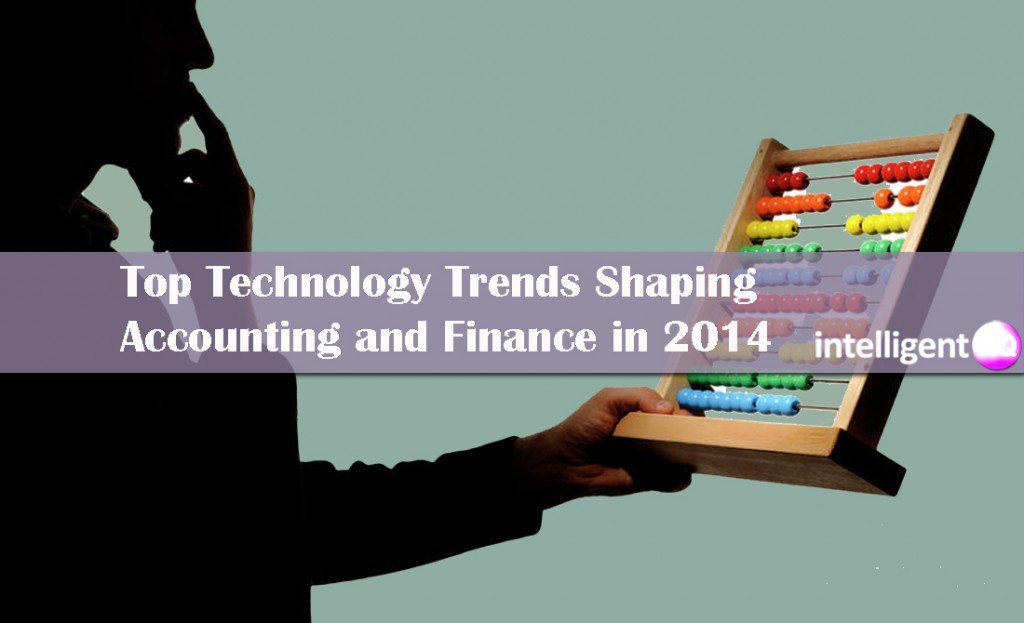Understanding the trends that are occurring in technology can help with better financial planning and budgeting. Accounting and finance professionals can benefit from comprehending these trends to be able to make knowledgeable and informed decisions for their businesses. Even for those that are ahead of the game and understand emerging technology really well, it can still be difficult to predict which will be the most influential trends shaping accounting and finance departments. Gaining an awareness and understanding of the most important trends also helps with demonstrating that you know what is important and don’t make a poor decision that will detrimentally impact the business based on a lack of information.
Writing for Wired “Innovation Insights”, Jeremy Roche (2014) prepared a list of the top trends to be aware of that are facing accounting and finance in 2014. This is a useful place to start in understanding the technology trends that finance and accounting professionals may need to be aware of during the course of this year.
Right at the top of the list is cloud computing, and this is perhaps no surprise to some. For those that need to get a better idea of what cloud computing means, Forbes writer Joe McKendrick (2013) provides some interesting quotes that help to describe it. Roche highlights that Gartner reported that cloud spending will be the largest component of IT spending by the year 2016. The growth of this industry is five times that of the rest of the industry (Roche, 2014). The expected trends in this area are that big organisations will continue to move to the cloud, and that cost will not be the biggest driver. Rather, innovation and agility will be important drivers in this area.
Five top technology trends shaping accounting and financeSocial collaboration is second on Roche’s list of technology trends. It is fully expected that social tools will gain precedence in the workplace helping people to be able to better collaborate with one another and share information more effectively. This may even reduce the use of email to a large degree, and it is expected that accounting applications will start to have instant messenger functionality included within for easier communication with colleagues.
Mobile is another major technological factor that is likely to affect accounting and finance this year. The main driver for this, according to Roche (2014) is being able to work more effectively while on the move. As Roche puts it “2014 will see a subtle shift from consuming information on a mobile device to using a mobile device to harvest new information”. It is anticipated that the use of business focused apps will allow activities like authorising expenses and timesheets to be completed using mobile, says Roche.
Real time analytics is another big trend on Roche’s list that is perceived to be likely to have a great impact. In particular, Roche explains that there is so much data being created digitally and at such phenomenal rates that until now it has not necessarily been used as effectively as it could have been. During 2014 it is expected that organisations will want to be able to address this and use this information to scope out the competitive environment, looking at opportunities, threats and trends. It is expected that businesses will want to develop dashboards that allow them to see at a glance the trends and threats that they face, and all of this will be driven by better use of real time analytics. It is expected that for many businesses this will become an important differentiator driving their success over their competitors.
Roche concludes with a final trend which he states is “cementing the importance of the platform”. It is argued that older on premise applications will be replaced by cloud applications, and as well that legacy systems may be superseded. As Roche explains, this makes operations much easier for business, as cloud business models allow organisations to take advantage of new functionality and capabilities right away, rather than waiting for the opportunity to be able to implement these in their businesses. Roche believes that this promotes the position of the platform, where shared computing environments provide the opportunity for vendors to sell a range of applications that meet business needs better, and to mix and match in some cases. This is what he means by cementing the importance of the platform.

Paula Newton is a business writer, editor and management consultant with extensive experience writing and consulting for both start-ups and long established companies. She has ten years management and leadership experience gained at BSkyB in London and Viva Travel Guides in Quito, Ecuador, giving her a depth of insight into innovation in international business. With an MBA from the University of Hull and many years of experience running her own business consultancy, Paula’s background allows her to connect with a diverse range of clients, including cutting edge technology and web-based start-ups but also multinationals in need of assistance. Paula has played a defining role in shaping organizational strategy for a wide range of different organizations, including for-profit, NGOs and charities. Paula has also served on the Board of Directors for the South American Explorers Club in Quito, Ecuador.












